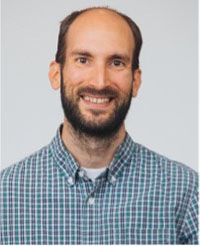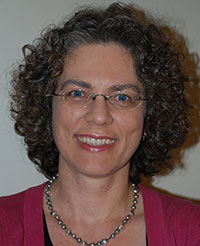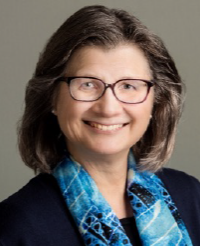Speaker Bios

Norman E. Sharpless, M.D.
Norman E. “Ned” Sharpless, M.D., was officially sworn in as the 15th director of the National Cancer Institute (NCI) on October 17, 2017. Prior to his appointment, Dr. Sharpless served as the director of the Lineberger Comprehensive Cancer Center at the University of North Carolina (UNC).
Dr. Sharpless was a Morehead Scholar at UNC–Chapel Hill and received his undergraduate degree in mathematics. He went on to pursue his medical degree from the UNC School of Medicine, graduating with honors and distinction in 1993. He then completed his internal medicine residency at the Massachusetts General Hospital and a hematology/oncology fellowship at Dana-Farber/Partners Cancer Care, both of Harvard Medical School in Boston. After 2 years on the faculty at Harvard Medical School, he joined the faculty of the UNC School of Medicine in the Departments of Medicine and Genetics in 2002. He became the Wellcome Professor of Cancer Research at UNC in 2012.
Dr. Sharpless is a member of the Association of American Physicians and the American Society for Clinical Investigation, and is a Fellow of the Academy of the American Association of Cancer Research. He has authored more than 160 original scientific papers, reviews, and book chapters, and is an inventor on 10 patents. He cofounded two clinical-stage biotechnology companies: G1 Therapeutics and Sapere Bio (formerly HealthSpan Diagnostics). He served as Acting Commissioner for Food and Drugs at the US FDA for seven months in 2019, before returning to the NCI Directorship.

Jeffrey E. Shuren MD, JD
Jeffrey Shuren, MD, JD is the Director of the Center for Devices and Radiological Health (CDRH) at FDA. He previously served as Acting Center Director. Dr. Shuren has held various policy and planning positions within FDA from 1998 to 2009, including Acting Deputy Commissioner for Policy, Planning, and Budget; Associate Commissioner for Policy and Planning; and Special Counsel to the Principal Deputy Commissioner. Dr. Shuren is board certified in Neurology and served as an Assistant Professor of Neurology at the University of Cincinnati. In 1998, Dr. Shuren joined FDA as a Medical Officer in the Office of Policy. In 2000, he served as a detailee on the Senate HELP Committee. In 2001, he became the Director of the Division of Items and Devices in the Coverage and Analysis Group at the Centers for Medicare and Medicaid Services. From 1998 to 2003, he served as a Staff Volunteer in the National Institutes of Health’s National Institute of Neurological Disorders and Stroke Cognitive Neuroscience Section supervising and designing clinical studies on human reasoning. Dr. Shuren returned to FDA as the Assistant Commissioner for Policy in 2003, and assumed his current position in September 2009.

Anthony Kerlavage, Ph.D.
Dr. Tony Kerlavage has served as the director of CBIIT since May of 2019. He joined NCI as a program director in 2011 after more than 25 years in the public and private sector as a leader in bioinformatics and genomics. He became chief of the Cancer Informatics Branch in 2012 and acting director of CBIIT in 2017.
During his tenure, NCI’s efforts in advancing open data, open software, and open science have increased exponentially. Dr. Kerlavage has led ground-breaking efforts in these areas, including helping to establish the NCI Cancer Cloud Resources and the Cancer Research Data Commons.
Dr. Kerlavage did his postdoctoral work at the University of Pennsylvania, studying the structure/function relationships of ribosomes. He then spent seven years as a senior staff fellow at the National Institute of Neurological Disorders and Stroke, where he studied the function of neurotransmitter receptors. This work led to the cloning and sequencing of several neurotransmitter receptor genes and, ultimately, resulted in expressed sequence tags for thousands of brain proteins. Dr. Kerlavage left NIH in 1992 to become a founding member and director of the Department of Bioinformatics at The Institute for Genomic Research, focusing on informatics support for whole genome sequencing and analysis. He subsequently moved to Celera Genomics, where he served as senior director of the online information business, providing access to the first draft of the human genome to academia and industry. He also served as senior director of global service development at Applied Biosystems and Life Technologies, where he supported global customers with intelligent monitoring systems for scientific instrumentation, LIMS systems, and computational infrastructure for next-generation sequencing technologies. Dr. Kerlavage received his master’s and doctorate degrees from the University of California, San Diego, and his undergraduate degree from Pennsylvania State University, all in chemistry.

Lalitha K. Shankar, MD, PhD
Lalitha K. Shankar, MD, PhD, is at the Cancer Imaging Program at the National Cancer Institute, at the National Institutes of Health in Bethesda, MD. Since joining NCI in 2003, she has served as an Advisor to the Associate Director of the Division of Cancer Treatment and Diagnosis. She is the Chief of the Clinical Trials Branch at the Cancer Imaging Program. Her research interests have been both in the role of functional and molecular imaging in the diagnosis and treatment of cancer, as well as evaluating the performance characteristics of imaging modalities for optimal use in the management of the cancer patient. Her work involves establishment of and monitoring of clinical trials to evaluate imaging tracers and techniques, which aim to improve the prevention, diagnosis and treatment of cancer. She provides imaging expertise for ongoing trials of cancer therapeutics sponsored by NCI in the NCTN and NCORP. She has served on the RECIST Committee since 2006 and is the Chair of the RECIST PET Working Group and a member of the RECIST Steering Committee and the EORTC Imaging Committee. She has served on FDA’s Medical Imaging Drug Advisory Committee. She serves on the advisory committees of several trans-European biomarker initiatives. She is the recipient of several NIH and NCI Director Awards.
Dr. Lalitha K. Shankar received her medical degree in Bangalore University, India and received her MS and PhD in Radiation Sciences at Hahnemann University, Philadelphia. She then trained in clinical Nuclear Medicine and completed fellowships in Positron Emission Tomography and Radio-immunodiagnosis and radio-immunotherapy at the University of Pennsylvania in Philadelphia. Prior to joining the National Cancer Institute, she was a faculty member in the Department of Radiology at Georgetown University and at the Lombardi Cancer Center and also worked in the Division of Nuclear Medicine at Washington Hospital Center – both in Washington, DC.

Lyndsay Harris, M.D.
Dr. Lyndsay Harris comes to the NCI from a 30 year career in breast cancer research and translational science. She has over 170 publications and has led Breast Cancer programs at Yale University and Case Western Reserve University where her lab studied the genomics of resistance to HER2 positive breast cancer and disparities in triple negative breast cancer. As Associate Director of the Cancer Diagnosis Program her role is to direct her team in the development of robust prognostic and therapeutic biomarkers through the study of biospecimen science, technology and innovation, pathology evaluation and genomics. The Cancer Diagnosis Program works closely with the Cancer Therapy Evaluation Program (CTEP) to implement biomarkers into several Precision Medicine trials including the NCI-MATCH (Molecular Analysis for Therapy Choice) trial where Dr. Harris serves as a Co-PI and ComboMATCH, a study of novel combination therapies. In addition, Dr. Harris manages the MDNet assay network that has been set up to run molecular assays on three new Precision Medicine trials.

Kristofor Langlais, Ph.D.
Kristofor Langlais, Ph.D., is a policy analyst at the FDA Center for Devices and Radiological Health (CDRH) Office of Product Evaluation and Quality, where he employs subject matter expertise in molecular genetics and science policy to advance personalized medicine through regulatory oversight of cutting-edge molecular diagnostics. Previously, he led the Genomics and Health Program within the National Institutes of Health (NIH) Office of Science Policy (OSP), which addresses emerging, high-impact issues of importance to the biomedical research enterprise and the U.S. Government. In this role, Dr. Langlais provided leadership in the development and oversight of policies and initiatives that advanced the NIH Director’s priorities in the areas of genomic medicine and data sharing. He played a key role in the development of the NIH Genomic Data Sharing Policy and led cross-disciplinary teams to address emerging privacy concerns that arise with new technologies. Prior to joining OSP in 2011, Dr. Langlais completed a postdoctoral fellowship at the Eunice Kennedy Shriver National Institute of Child Health and Human Development (NICHD), NIH, performing high-impact research on epigenetic regulation of gene expression during embryonic development. Dr. Langlais received his Ph.D. in molecular and cellular biology from the Oregon Health & Science University School of Medicine.

John Pfeifer, MD, PhD
Dr. Pfeifer is a Professor of Pathology, and of Professor of Obstetrics and Gynecology, at Washington University School of Medicine. He is board certified in Anatomic Pathology and in Molecular Genetic Pathology, and has been a practicing surgical pathologist for over 25 years. Dr. Pfeifer helped lead the development of the Washington University Genetics and Pathology Services (WU-GPS) laboratory, a CAP/CLIA certified NGS environment designed around panel based, whole exome, and genome wide analysis to support patient care, clinical trials, and translational research studies, in the setting of oncology as well as inherited disease. Dr. Pfeifer's academic interests are primarily focused on investigation of the role of molecular genetic testing in the analysis of tissue specimens, specifically on the methods and clinical settings in which molecular testing provides independent information that increases diagnostic accuracy, provides more accurate prognostic estimates, or can be used to guide therapy.

Euan Ashley, MD, PhD
Euan Ashley is Associate Dean and Professor of Medicine and Genetics at Stanford University in California. Over the last decade his team has focused on the application of the human genome to medicine. He was recognized by the Obama White House for his contributions to Personalized Medicine and awarded the American Heart Association Medal of Honor for Genomic and Precision Medicine. His book The Genome Odyssey – Medical Mysteries and the Incredible Quest to Solve Them was released in 2021. He is co-founder of three companies: Personalis, DeepCell and SVEXA. Father to three young Americans, in his spare time, he tries to understand American football, plays jazz saxophone, and conducts research on the health benefits of single malt Scotch whisky.

Carolyn Hiller, MBA
Carolyn Hiller is Program Director for the Clinical Diagnostics initiative at the Medical Device Innovation Consortium (MDIC). Drawing on diverse experiences, she uses logic and intuition to achieve success at leading virtual teams that are often comprised of members from competing organizations. Carolyn works at the intersection of the medical device industry, federal agencies, and non-profit groups to bring innovative technology to patients faster, safer, and more cost effectively by contributing regulatory science tools, standards, and methods, for both the IVD development process and the review process. She brings diverse experiences in the healthcare sector; in addition to nearly a decade working in the medical device industry, she brings a decade of executive non-profit leadership experience including national organizations representing patients, researchers, physicians, and clinical facilities. Carolyn enjoys the collaborative nature of MDIC as its programs advance regulatory science for the benefit of patients, which is an important step toward providing a predictable path for innovation.

Justin Zook, Ph.D.
Dr. Justin Zook is co-leading the Genome in a Bottle Consortium’s work developing authoritatively characterized human genomes to benchmark sequencing methods. He developed methods to compare and integrate whole genome DNA sequencing data from multiple platforms and sequencing runs to characterize the first whole human genome Reference Materials. He is now leading the GIAB Analysis Team work combining short, linked, and long read sequencing technologies to characterize structural variation and challenging regions of the genome. He co-leads the variants team in the Telomere-to-Telomere Consortium demonstrating the utility of the first complete human genome. He was an Informatics Representative to the Association for Molecular Pathology Clinical Practice Committee, and he chaired the Global Alliance for Genomics and Health Benchmarking Team, which published best practices for benchmarking genome sequencing results in 2019.

Birgit Funke, PhD, PACMG
Dr. Funke received her Ph.D. from the University of Würzburg, Germany and trained as a postdoctoral fellow at the Albert Einstein College of Medicine where she identified the gene for 22q11 deletion syndrome. She is Board certified in Clinical Molecular Genetics, served as Associate Professor of Pathology at Harvard Medical School and was among the first worldwide to implement clinical NGS in 2011 at the Laboratory for Molecular Medicine in Cambridge.
In addition, Dr. Funke is known for leading international efforts to develop professional standards and guidelines for clinical genomic knowledge curation as well as development and validation of clinical genomic tests.
Today, Dr. Funke is Vice President of Genomic Health at Sema4. Her long-term goal is to help increase the use genomic testing in clinical care, especially for disease prevention.

Bradley J. Erickson, MD, PhD
Bradley J. Erickson, M.D., Ph.D., is a consultant in the Department of Radiology, with a joint appointment in the Division of Biomedical Statistics and Informatics, Department of Health Sciences Research, at Mayo Clinic in Rochester, Minnesota. Dr. Erickson serves as medical director for the Office of Artificial Intelligence in the Center for Digital Health. He joined the staff of Mayo Clinic in 1994 and holds the academic rank of professor of radiology Mayo Clinic College of Medicine and Science.
Dr. Erickson earned his bachelor’s degree at Concordia College in Moorhead, Minnesota, and his M.D. at Mayo Medical School (now known as Mayo Clinic Alix School of Medicine). He earned his Ph.D. in the biomedical imaging track of the Department of Physiology and Biomedical Engineering at Mayo Clinic Graduate School of Biomedical Sciences. He subsequently continued his training at Mayo Clinic, completing a radiology residency followed by a fellowship in neuroradiology.
Dr. Erickson’s research interests include computer-aided diagnosis and the use of computer technologies to extract information from medical images for diagnostic, prognostic and therapeutic purposes. This research includes the development and validation of algorithms that can detect progression, regression or risk of disease, and the prediction of molecular markers from medical images. He is also actively developing a system to promote team science, initially pursuing imaging-focused research, but with connections to genomics, pathology and clinical data. His work is funded by the National Institute of Diabetes and Digestive and Kidney Disease; National Institute of General Medical Sciences; National Institute of Neurological Disorders and Stroke; and National Cancer Institute.
Dr. Erickson has given presentations on his research both nationally and internationally, and he has authored numerous journal articles, book chapters and abstracts. He is associate editor of Journal of Digital Imaging and the Journal of Magnetic Resonance Imaging.
In recognition of his work, Dr. Erickson has received many awards and honors, including the Carman Award for Outstanding Research, conferred by the Department of Radiology, Mayo Clinic; the Sam Dwyer Lectureship Award, conferred by the Society for Imaging Informatics in Medicine; the Distinguished Investigator Award, conferred by the Academy for Radiology and Biomedical Imaging Research; and the NVidia Global Impact Award. He is also a recipient of the Mayo Clinic 2020 Team Science Award. Dr. Erickson has served as chair of the American Board of Imaging Informatics and the Society for Imaging Informatics in Medicine.
In addition to his clinical and research activities, Dr. Erickson is active in education and provides mentorship to more than 50 postdoctoral fellows, and is primary mentor for five Ph.D. students. He also wrote the original QREADS clinical image display application that has been used throughout Mayo Clinic for more than 25 years.

Maryellen Giger, PhD
Maryellen Giger, Ph.D. is the A.N. Pritzker Distinguished Service Professor of Radiology, Committee on Medical Physics, and the College at the University of Chicago. She has been working, for multiple decades, on computer-aided diagnosis /machine learning/deep learning in medical imaging and cancer diagnosis / management. Her AI research in breast cancer for risk assessment, diagnosis, prognosis, and therapeutic response has yielded various translated components, and she is using these “virtual biopsies” in imaging-genomics association studies. She has now extended her AI in medical imaging research to include the analysis of COVID-19 on CT and chest radiographs, and is contact PI on the NIBIB-funded Medical Imaging and Data Resource Center (MIDRC). Giger is a former president of AAPM and of SPIE; is a member of the NIBIB Advisory Council of NIH; and is the Editor-in-Chief of the Journal of Medical Imaging. She is a member of the National Academy of Engineering; Fellow of AAPM, AIMBE, SPIE, SBMR, IEEE, IAMBE and COS; and was cofounder, equity holder, and scientific advisor of Quantitative Insights [now Qlarity Imaging], which produces QuantX, the first FDA-cleared, machine-learning driven CADx (AI-aided) system.

Curtis P. Langlotz, MD, PhD
Dr. Langlotz is Professor of Radiology and Biomedical Informatics and Director of the Center for Artificial Intelligence in Medicine and Imaging (AIMI Center) at Stanford University, which comprises over 120 Stanford faculty from 20 departments and 3 schools. The AIMI Center conducts interdisciplinary machine learning research that optimizes how clinical images are used to promote health. Dr. Langlotz’s laboratory investigates the use of deep neural networks and other machine learning technologies to help radiologists detect disease and eliminate diagnostic errors.
